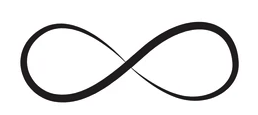Coarsening of thin films with weak condensation
Abstract
A lubrication model can be used to describe the dynamics of a weakly volatile viscous fluid layer on a hydrophobic substrate. Thin layers of the fluid are unstable to perturbations and break up into slowly evolving interacting droplets. In this talk, we will present a reduced-order dynamical system derived from the lubrication model based on the nearest-neighbour droplet interactions in the weak condensation limit. Dynamics for periodic arrays of identical drops and pairwise droplet interactions are investigated which provide insights to the coarsening dynamics of a large droplet system. Weak condensation is shown to be a singular perturbation, fundamentally changing the long-time coarsening dynamics for the droplets and the overall mass of the fluid in two additional regimes of long-time dynamics. This is joint work with Thomas Witelski.



